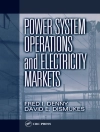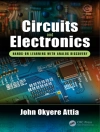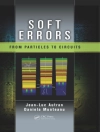This books provides a comprehensive platform to the scientific, education and research communities working on various fields related to sustainable energy. It covers the exploration, generation and application of this area to meet societal needs as well as addressing global issues related to the environment. The content of this book presents research related to energy and how to tackle climate change as a comprehensive framework based on the success of the Millennium Development Goals (MDGs). The authors use the scientific method to analyze and deliver viable technical solutions, demonstrating how chemistry and engineering can be combined to solve technically challenging problems. While maintaining high scientific rigor, a quantitative approach is offered in select chapters to the study of energy related to our societies increasing need for electrical and chemical energy feedstocks.
Spis treści
Preface.- Chapter 1. Promising Clean Energy Development: Practice, Challenges and Policy Implications (Sajid Bashir, Sai Chava, Weixin Song, Yong-jun Gao and Jingbo Louise Liu).- Chapter 2. Applications and Fundamentals of Photocatalysis With Solar Energy (Qiuyang Huang, Dan Kong, Yongdan Li).- Chapter 3. Functional Nucleic Acid Hybrid Materials for Photovoltaic Cells: Design, Fabrication, and Performance (Dan Bai, Huhu Feng, Xingchen Yu, Chenxin Ran, Wei Huang).- Chapter 4. First-Principles Calculations for the Interfaces of Perovskite Solar Cells (Jun-Peng An, Ying Tian, Hong-Tao Xue, Jun-Chen Li, Jun-Qiang Ren, Xue-Feng Lu, Fu-Ling Tang).- Chapter 5. Clean Hydrogen Production Technologies (Mohammad Yusuf, Mohamad Sahban Alnarabiji, Bawadi Abdullah).- Chapter 6. Thermal Hydrogen Compression Based on Metal Hydride Materials (Claudio Corgnale, Robert C. Bowman, Jr., Theodore Motyka).- Chapter 7. Oxygen Reduction Reaction Performed by Ru-Based Catalysts (J. Uribe-Godínez, A. Altamirano-Gutiérrez).- Chapter 8. Direct Catalytic Low-Temperature Conversion of CO2 and Methane to Oxygenates (Ashraf Abedin, James J. Spivey).- Chapter 9. Heat Transfer Analysis in Solar Thermal Collectors (Pankaj Kalita, Dudul Das, Samar Das, Rabindra Kangsha Banik, Urbashi Bordoloi).- Chapter 10. Heat Transfer Fluids in Concentrating Solar Power Systems, Principle & Practice (Elise B. Fox, Sai Raghuveer Chava, Jingbo Liu, and Sajid Bashir).- Chapter 11. Electrocatalysis for the Water Splitting: recent strategies for improving the performance of electrocatalyst (Tanveer ul Haq and Yousef Haik).- Chapter 12. Future of Electrochemical Energy Storage and Its Impact on The Transition Metals (Nazmul Huda, Shahjadi Hisan Farjana).- Chapter 13. The Application in Energy Storage and Electrocatalyst of Vanadium (Based) Oxides (Yue Wang, Fan Li, Sajid Bashir, Jingbo Louise Liu).- Chapter 14. Water-Stable Metal-Organic Frameworks for Water Adsorption (Xuan Wang, Charles Lee).- Chapter 15. Supercapacitors: History, Theory, Emerging Technologies and Applications (Yiyang Liu, Paul R. Shearing, Guanjie He and Dan J. L. Brett).- Chapter 16. Interlayer Structural Engineering of 2D MXene for Electrochemical Energy Storage (Jianmin Luo).- Chapter 17. The Role of Ex-Situ Solid-Electrolyte-Interphase in Lithium Metal Batteries (Rajesh Pathak, Yue Zhou, & Qiquan Qiao).- Chapter 18. 3D X-Ray Characterization of Energy Storage and Conversion Devices (Chun Tan, Andrew S. Leach, Thomas M. M. Heenan, Rhodri Jervis, Dan J.L. Brett, Paul R. Shearing).- Chapter 19. In-Situ Transmission Electron Microscopy for Studying Lithium-Ion Batteries (Chen Gong†, Shengda Pu†, Alex W. Robertson).- Chapter 20. Clean Coal Conversion Processes – The Present and Future Challenges (E. Gerald Meyer, Sai Raghuveer Chava, Jingbo Liu, and Sajid Bashir).- Chapter 21. Coal Gasification with Exergy Recuperation and CO2 Recovery (Zhongkai Zhao, Yohanes Andre Situmorang, Atsushi Tsutsumi, Xiaogang Hao, Abuliti Abudula, and Guoqing Guan).- Chapter 22. Lignin and Lignocellulosic Materials: A Glance-On the Current Opportunities for Ene.rgy and Sustainability (Marwa El-Azazy, Sajid Bashir, Jingbo L. Liu, Mohamed F. Shibl).- Chapter 23. Municipal Solid Waste Incineration and Sustainable Development (Beatriz S. Bandarra, Margarida J. Quina).- Chapter 24. Microbial Fuel Cells: Design and Evaluation of Catalysts and Device (Sajid Bashir, Shawn P. Mulvaney, William Houf, Luis Villanueva, Zhaohui Wang, Gregory Buck, Jingbo Louise Liu).- Chapter 25. Smart Energy Trend Observation (Rui Guan, Yunchuan Wan, Sai Raghuveer Chava‡, Jingbo Liu, † Sajid Bashir† and Gao Yongjun).- Chapter 26. Materials in Renewable Energy: Overview (Ran Wei Yongjun Gao, Zhihua Wu, Sai Raghuveer Chava‡, Jingbo Liu† and Sajid Bashir†).- Chapter 27. Post Face: Conclusion on Renewable energy strategies for a sustainable future (Weixin Song*, Yongjun Gao, Sajid Bashir, Jingbo Louise Li).- Index.
O autorze
Yong-jun Gao is the Deputy Director of Clean Energy and Energy Conservation and Environmental Protection Center, Zhejiang Yangtze River Delta. Since 2001, he has conducted leading-edge research in the fields of energy and environmental protection. He has won academic prizes in the China Nuclear Energy Association, the China Electricity Council, and the Science and Technology Management Innovation of State Power Investment Corporation Limited. His focus is on environmental energy policy, implementation of advanced sustainable energy technologies and workforce development.
Weixin Song is a Postdoctor Research Fellow of the STEM Group at the Department of Materials, University of Oxford, UK. He received his Ph.D. (2019) in Material Electrochemistry from Imperial College London, UK. He has been a member of the Centre for Doctoral Training of Advanced Characterisation of Materials and London Centre for Nanotechnology. He completed his BSc (2012) and MSc (2015)from Central South University, China. His research interest includes material electrochemistry and characterisation in the area of energy storage, electrocatalysis and photoelectrocatalysis, particularly using the advanced techniques of electron microscopy and spectroscopy. He has participated in the SOLBAT and CATMAT projects funded by the Faraday Institution of the UK. He has published 21 first-author peer-reviewing papers, 18 licensed patents and one book chapter (Springer Publisher). He has received the highest student honour of Central South University (2014), the Imperial College President’s Ph D Scholarship (2015), STFC Future Early Career Award (2016), Armourers & Brasiers Rolls-Royce Scheme Grant (2018), National Award for Outstanding Self-finance Students Abroad (2018), MPLS Enterprise Fellowship (2019) and Constance Fligg Tipper Centenary Memorial Prize (2020).
Jingbo (Louise) Liu received her Ph.D. in Materials Science and Engineering (with a focus on materi^ 150 undergraduates and 35 graduate students. She served as the National Science Foundation panelist & chair, journal editor, and also as a reviewer for dozens of journals. Dr. Liu participated in and directed more than 40 sponsored projects, supported by the NSF; R. Welch Foundation; Department of Education; Petroleum Research Fund of American Chemical Society (ACS); and TAMU Energy Institute & TAMU-Kingsville. She published more than 100 journal articles, books, and book chapters. Being a Directed Energy Bio-effects Institute faculty fellow at the US Air Force Research Laboratory (AFRL) and co-filed 2 AFRL patents to address clinical prevention and healthcare concerns. Due to her leadership in chemical sciences and engineering, she was awarded the distinction of Chartered Scientist by the Science Council and Chartered Chemist by the Royal Society of Chemistry (RSC). Recently, she was elected (in the group of twelve) the 2021 Distinguished Women in Chemistry or Chemical Engineering by the International Union of Pure and Applied Chemistry. Dr. Liu also holds Fellow Status with the International Association of Advanced Materials, Vebleo (Science Engineering and Technology) Society, RSC Fellow, Invitation Fellow to the Japan Society for the Promotion of Science, and invitation Fellow and Israel Summer Faculty Fellow.
Sajid Bashir received his Ph.D. in Analytical Chemistry from the University of Warwick, England, 20^20) projects supported by the Wel^ 80 book chapters and peer-reviewed journal articles. He is a fellow and Chartered Chemist of the Royal Society of Chemistry, and a Chartered Scientists. During his service in TAMUK, he trained more than 4, 000 students on both undergraduate and graduate levels. He created online courses and established safety-training protocols in conjunction with Risk Management. Currently, he collaborates with local law enforcement as a consultant. Dr. Bashir was theformer chair of the American Chemical Society (ACS) South Texas Region (2011-2012).












